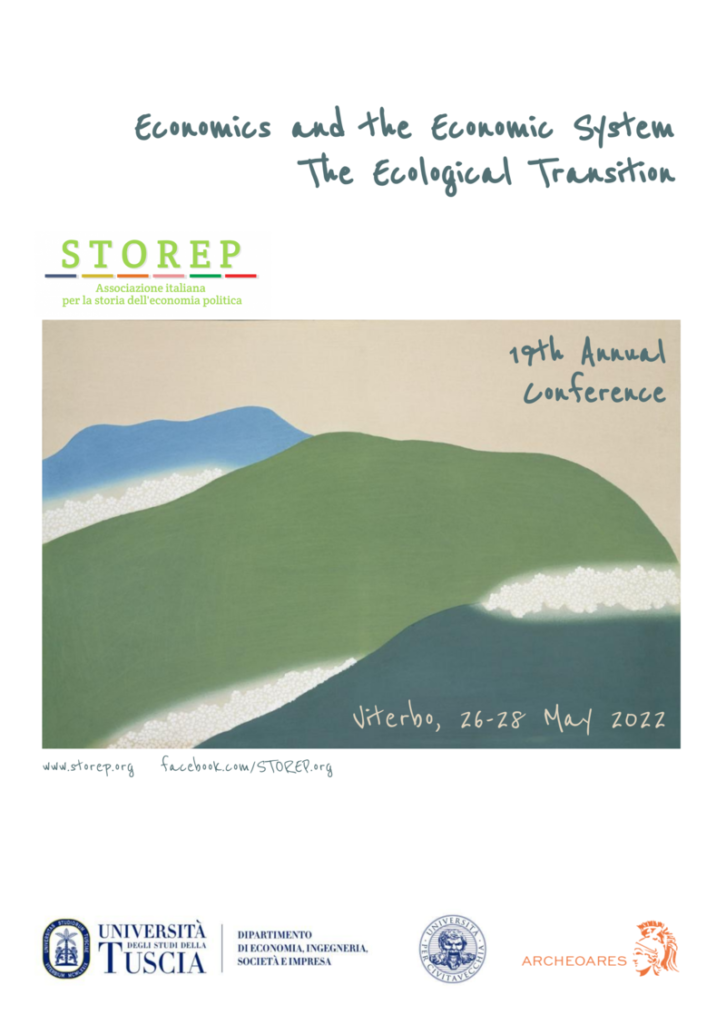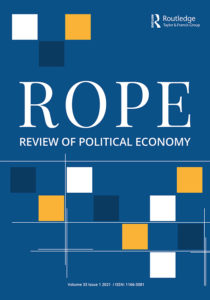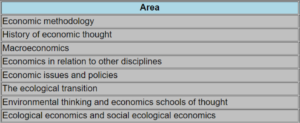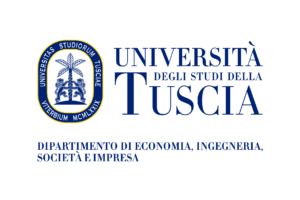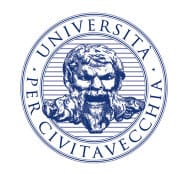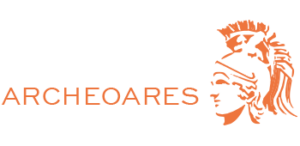19th STOREP Annual Conference – 26-28 May 2022
Economics and the Economic System: The Ecological Transition
19th STOREP Annual Conference
Università della Tuscia, Viterbo, 26-28 May 2022
II Home ΙΙ Registration ΙΙ Invited Speakers ΙΙ Raffaelli Lecture ΙΙ INET-STOREP Initiative ΙΙ
ΙΙ Young Scholars ΙΙ General and Session Program – Special session @ Polo Universitario di Civitavecchia II
II Numbers and areas II Venue II Accommodation and social activities II
* * *
The 19th STOREP Annual Conference will be held at Università degli Studi della Tuscia, Dipartimento di Economia, Ingegneria, Società e Impresa (DEIM), Viterbo, on May 26-28, 2022.
The title of the Conference is “Economics and the Economic System: The Ecological Transition”. The year coincides with the fiftieth anniversary of one of the most influential scientific reports of the modern era, Limits to Growth (D. H. Meadows, D. L. Meadows, Randers, and Behrens III, 1972) by the Club of Rome. A groundbreaking j’accuse against “growthmania” – endless growth as universal yardstick and panacea, science and technology providing adequate solutions for environmental challenges –, whose various scenarios, we are now forced to realize, were not predictions but warnings (Urhammer & Røpke 2022), which should help us focus on the environmental impact of our activities.
It is now widely recognized that the endless interactions of human beings between themselves and with the environment – as well as between the human social system and the ecosystem – should induce social scientists to adopt a complexity-science approach to the most pressing problems of our era. For instance, the Covid-19 pandemic should be rather considered as a “syndemic”, since the infectious disease is in truth accompanied and amplifies (being amplified in its turn by) a series of non-communicable diseases which have to do with social and economic disparities (Horton 2020). At the same time, awareness of the influence of climate change on the spread of Covid-19, and the lessons that we can draw from observing the environmental implications of the pandemic as regards how to manage the global climate emergency should help us promote a complexity-science approach to sustainability.
 Various European countries now have a Ministry for the Ecological transition, in the attempt to direct the NextGeneration EU recovery package towards green priorities and investments. Policymakers tend to believe that technological progress can favor decoupling between economic growth and exhaustible resource use, and that it is possible to redirect demand towards goods and services that are compatible with environmental and social sustainability (for instance to avoid that relative decoupling perversely reduce the possibility of absolute decoupling). As Tim Jackson (2009) has famously pointed out, however, flourishing within limits seems to require a concept of prosperity without growth. But we continue assuming that economics and ecology are not in conflict: as Daly (2015) remarks, “because of the exponential economic growth since World War II, we now live in a full world, but we still behave as if it were empty, with ample space and resources for the indefinite future”.
Various European countries now have a Ministry for the Ecological transition, in the attempt to direct the NextGeneration EU recovery package towards green priorities and investments. Policymakers tend to believe that technological progress can favor decoupling between economic growth and exhaustible resource use, and that it is possible to redirect demand towards goods and services that are compatible with environmental and social sustainability (for instance to avoid that relative decoupling perversely reduce the possibility of absolute decoupling). As Tim Jackson (2009) has famously pointed out, however, flourishing within limits seems to require a concept of prosperity without growth. But we continue assuming that economics and ecology are not in conflict: as Daly (2015) remarks, “because of the exponential economic growth since World War II, we now live in a full world, but we still behave as if it were empty, with ample space and resources for the indefinite future”.
STOREP 2022 brings together scholars from all over the world wanting to discuss the relationship between environmental limits and growth and wellbeing, as well as the conditions required to support a transition towards more sustainable patterns of consumption and production. The Conference welcomes contributions on the theoretical understanding, policy implications, and empirical evidence of the ecological transition. Historians of economic thought, in particular, will explore how economists have finally (if) succeeded to bring the natural world back into the analysis, while those with specific interest in economics as a discipline will likely direct their attention to the foundations of the variety of (orthodox, mainstream, heterodox) schools of thought currently populating the landscape of economics research in relation to environmental issues (e.g. Spash 2020).
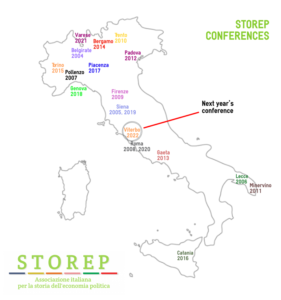
Possible focuses for the Conference sessions include, but are not limited to:
- economics and the environment: orthodox/ mainstream/heterodox schools of thought
- historical, methodological and ontological foundations of ecological economics
- the social ecological economics approach
- environmental thinking and the need to rethink economics
- growth, ‘without’ growth, ‘de’growth
- planetary boundaries and the anthropocene
- ecological macroeconomics
- Post-Keynesian and ecological economics
- input-output analysis for sustainability
- the inequalities-environment nexus
- sustainability and (vs.?) circular economy
- the role of technological change in promoting sustainability
- sustainable consumption and happiness
- the Covid-19 pandemic and the future of both economies and economics
- GDP and its alternatives
- sustainable development goals and global green new deals
Proposals of papers in all fields adopting a historical perspective and/or comparing different approaches to economic issues are also welcome.
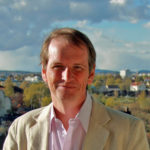
STOREP warmly welcomes special sessions jointly organized with other scientific associations and invites these latter to submit proposals.
Special sessions will be jointly organized with Accademia Italiana di Economia Aziendale, AIDEA (Alessandro Ruggieri, Università degli Studi della Tuscia, DEIM), and the Italian Society of Agricultural Economics, SIDEA (Giacomo Branca, Università degli Studi della Tuscia). The Polo Universitario di Civitavecchia will host a special session jointly organised with the Master’s degree in Circular Economy (Enrico Maria Mosconi, Università degli Studi della Tuscia, DEIM).
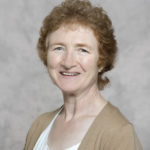
As in the past, the Conference will jointly organize initiatives and special sessions with the Institute for New Economic Thinking, the “Young Scholars Initiative”, as well as with students and researchers of the international network Rethinking Economics.
We are pleased to announce that distinguished colleague Clive L. Spash (WU Vienna University of Economics and Business) will join the conference as keynote speaker, and that Renee Prendergast (Queen’s University Belfast) will give the sixth “Raffaelli Lecture”.
Proposals submission
Abstract and session proposals must be uploaded on the Submission website of the conference – i.e. via web-based software “Conference maker”. To submit, please create an account, by providing basic contact info and choosing a user ID/password. If you signed up for a previous conference using Conference Maker, you can login with your existing user ID and password. Please follow the instructions here. Note that submitters have to add co-authors, if any, once the proposal is submitted (by clicking on “Add/modify authors”).
 Abstract proposals (with keywords, JEL codes, and affiliation) must not exceed 400 words. Session proposals should include the abstract of the three scheduled papers.
Abstract proposals (with keywords, JEL codes, and affiliation) must not exceed 400 words. Session proposals should include the abstract of the three scheduled papers.
The deadline for submitting is March 28, 2022. Notification of accepted and rejected abstracts and sessions will be sent by April 4, 2022.
Selected papers on the main topic of the conference will be considered for publication in the Review of Political Economy and Economia & Lavoro.
Registration
All participants must become STOREP members or renew their membership (instructions here).
May 10, 2022 is the deadline for submitting full papers and for becoming Members.
STOREP Members
(early registration) by May 10: 110€
(late registration) after May 10: 175€
Others
(early registration) by May 10: 160€ (annual membership included)
(late registration) after May 10: 225€ (annual membership included)
Young scholars (non-tenured, under 40):
STOREP members: 40€
others: 60€ (annual membership included)
Young Scholars STOREP Awards
1) STOREP provides two Awards of 1000€ each (so as to make it possible to reward both history-of-economic-thought articles and more policy-oriented papers) for the best articles presented at the Annual Conference by young scholars under 40 years of age. All applications, with CV and the final version of the papers, should be sent to segretario@storep.org no later than January 15, 2023. Only papers co-authored by no more than 2 researchers, who both meet the requirements for belonging to the “Young” scholars, are eligible for the Award. Winning recipients of the award in one of the three preceding rounds cannot apply. Papers must neither have been published before nor be under review for publication in a scholarly journal at the time of the conference.
2) Scholarships for young scholars (under 40 years of age, non-tenured). In order to be eligible, the applicant is required to submit a Curriculum Vitae and an extended abstract (2,000 words ca., both to be uploaded on the Submission website) on any topic relevant to the history of political economy, by March 25, 2022. The final version of the papers must be uploaded within April 25, 2022. Applicants will be informed about the result of the evaluation process no later than May 5, 2022. Winners will be awarded free STOREP Conference registration, including the association’s annual membership fee, as well as, if possible, a lump sum contribution to travel and staying expenses.
Organizing Committee
Angela Ambrosino (STOREP Secretary, Università di Torino)
Ilaria Benedetti (Università degli Studi della Tuscia, DEIM)
Mario Cedrini (Università di Torino)
Stefano Di Bucchianico (Università degli Studi della Tuscia, DEIM)
Giulio Guarini (Committee Coordinator, Università degli Studi della Tuscia, DEIM)
Patrizio Morganti (Università degli Studi della Tuscia, DEIM)
Chiara Oldani (Università degli Studi della Tuscia, DEIM)
Scientific Committee
Angela Ambrosino (STOREP Secretary, Università di Torino)
Enrico Bellino (STOREP President, Università Cattolica del Sacro Cuore)
Mario Cedrini (Università di Torino)
Giulio Guarini (Università degli Studi della Tuscia)
Tiziana Laureti (Head of DEIM, Università degli Studi della Tuscia)
INSTITUTIONAL PARTNERS
Università degli Studi della Tuscia
Consorzio “Università per Civitavecchia”
Archeoares
Economics and the Economic System: The Ecological Transition
19th STOREP Annual Conference
Università della Tuscia, Viterbo, 26-28 May 2022
II Home ΙΙ Registration ΙΙ Invited Speakers ΙΙ Raffaelli Lecture ΙΙ INET-STOREP Initiative ΙΙ
ΙΙ Young Scholars ΙΙ General and Session Program – Special session @ Polo Universitario di Civitavecchia II
II Numbers and areas II Venue II Accommodation and social activities II
* * *
The 19th STOREP Annual Conference will be held at Università degli Studi della Tuscia, Dipartimento di Economia, Ingegneria, Società e Impresa (DEIM), Viterbo, on May 26-28, 2022.
The title of the Conference is “Economics and the Economic System: The Ecological Transition”. The year coincides with the fiftieth anniversary of one of the most influential scientific reports of the modern era, Limits to Growth (D. H. Meadows, D. L. Meadows, Randers, and Behrens III, 1972) by the Club of Rome. A groundbreaking j’accuse against “growthmania” – endless growth as universal yardstick and panacea, science and technology providing adequate solutions for environmental challenges –, whose various scenarios, we are now forced to realize, were not predictions but warnings (Urhammer & Røpke 2022), which should help us focus on the environmental impact of our activities.
It is now widely recognized that the endless interactions of human beings between themselves and with the environment – as well as between the human social system and the ecosystem – should induce social scientists to adopt a complexity-science approach to the most pressing problems of our era. For instance, the Covid-19 pandemic should be rather considered as a “syndemic”, since the infectious disease is in truth accompanied and amplifies (being amplified in its turn by) a series of non-communicable diseases which have to do with social and economic disparities (Horton 2020). At the same time, awareness of the influence of climate change on the spread of Covid-19, and the lessons that we can draw from observing the environmental implications of the pandemic as regards how to manage the global climate emergency should help us promote a complexity-science approach to sustainability.
 Various European countries now have a Ministry for the Ecological transition, in the attempt to direct the NextGeneration EU recovery package towards green priorities and investments. Policymakers tend to believe that technological progress can favor decoupling between economic growth and exhaustible resource use, and that it is possible to redirect demand towards goods and services that are compatible with environmental and social sustainability (for instance to avoid that relative decoupling perversely reduce the possibility of absolute decoupling). As Tim Jackson (2009) has famously pointed out, however, flourishing within limits seems to require a concept of prosperity without growth. But we continue assuming that economics and ecology are not in conflict: as Daly (2015) remarks, “because of the exponential economic growth since World War II, we now live in a full world, but we still behave as if it were empty, with ample space and resources for the indefinite future”.
Various European countries now have a Ministry for the Ecological transition, in the attempt to direct the NextGeneration EU recovery package towards green priorities and investments. Policymakers tend to believe that technological progress can favor decoupling between economic growth and exhaustible resource use, and that it is possible to redirect demand towards goods and services that are compatible with environmental and social sustainability (for instance to avoid that relative decoupling perversely reduce the possibility of absolute decoupling). As Tim Jackson (2009) has famously pointed out, however, flourishing within limits seems to require a concept of prosperity without growth. But we continue assuming that economics and ecology are not in conflict: as Daly (2015) remarks, “because of the exponential economic growth since World War II, we now live in a full world, but we still behave as if it were empty, with ample space and resources for the indefinite future”.
STOREP 2022 brings together scholars from all over the world wanting to discuss the relationship between environmental limits and growth and wellbeing, as well as the conditions required to support a transition towards more sustainable patterns of consumption and production. The Conference welcomes contributions on the theoretical understanding, policy implications, and empirical evidence of the ecological transition. Historians of economic thought, in particular, will explore how economists have finally (if) succeeded to bring the natural world back into the analysis, while those with specific interest in economics as a discipline will likely direct their attention to the foundations of the variety of (orthodox, mainstream, heterodox) schools of thought currently populating the landscape of economics research in relation to environmental issues (e.g. Spash 2020).

Possible focuses for the Conference sessions include, but are not limited to:
- economics and the environment: orthodox/ mainstream/heterodox schools of thought
- historical, methodological and ontological foundations of ecological economics
- the social ecological economics approach
- environmental thinking and the need to rethink economics
- growth, ‘without’ growth, ‘de’growth
- planetary boundaries and the anthropocene
- ecological macroeconomics
- Post-Keynesian and ecological economics
- input-output analysis for sustainability
- the inequalities-environment nexus
- sustainability and (vs.?) circular economy
- the role of technological change in promoting sustainability
- sustainable consumption and happiness
- the Covid-19 pandemic and the future of both economies and economics
- GDP and its alternatives
- sustainable development goals and global green new deals
Proposals of papers in all fields adopting a historical perspective and/or comparing different approaches to economic issues are also welcome.

STOREP warmly welcomes special sessions jointly organized with other scientific associations and invites these latter to submit proposals.
Special sessions will be jointly organized with Accademia Italiana di Economia Aziendale, AIDEA (Alessandro Ruggieri, Università degli Studi della Tuscia, DEIM), and the Italian Society of Agricultural Economics, SIDEA (Giacomo Branca, Università degli Studi della Tuscia). The Polo Universitario di Civitavecchia will host a special session jointly organised with the Master’s degree in Circular Economy (Enrico Maria Mosconi, Università degli Studi della Tuscia, DEIM).

As in the past, the Conference will jointly organize initiatives and special sessions with the Institute for New Economic Thinking, the “Young Scholars Initiative”, as well as with students and researchers of the international network Rethinking Economics.
We are pleased to announce that distinguished colleague Clive L. Spash (WU Vienna University of Economics and Business) will join the conference as keynote speaker, and that Renee Prendergast (Queen’s University Belfast) will give the sixth “Raffaelli Lecture”.
Proposals submission
Abstract and session proposals must be uploaded on the Submission website of the conference – i.e. via web-based software “Conference maker”. To submit, please create an account, by providing basic contact info and choosing a user ID/password. If you signed up for a previous conference using Conference Maker, you can login with your existing user ID and password. Please follow the instructions here. Note that submitters have to add co-authors, if any, once the proposal is submitted (by clicking on “Add/modify authors”).
 Abstract proposals (with keywords, JEL codes, and affiliation) must not exceed 400 words. Session proposals should include the abstract of the three scheduled papers.
Abstract proposals (with keywords, JEL codes, and affiliation) must not exceed 400 words. Session proposals should include the abstract of the three scheduled papers.
The deadline for submitting is March 28, 2022. Notification of accepted and rejected abstracts and sessions will be sent by April 4, 2022.
Selected papers on the main topic of the conference will be considered for publication in the Review of Political Economy and Economia & Lavoro.
Registration
All participants must become STOREP members or renew their membership (instructions here).
May 10, 2022 is the deadline for submitting full papers and for becoming Members.
STOREP Members
(early registration) by May 10: 110€
(late registration) after May 10: 175€
Others
(early registration) by May 10: 160€ (annual membership included)
(late registration) after May 10: 225€ (annual membership included)
Young scholars (non-tenured, under 40):
STOREP members: 40€
others: 60€ (annual membership included)
Young Scholars STOREP Awards
1) STOREP provides two Awards of 1000€ each (so as to make it possible to reward both history-of-economic-thought articles and more policy-oriented papers) for the best articles presented at the Annual Conference by young scholars under 40 years of age. All applications, with CV and the final version of the papers, should be sent to segretario@storep.org no later than January 15, 2023. Only papers co-authored by no more than 2 researchers, who both meet the requirements for belonging to the “Young” scholars, are eligible for the Award. Winning recipients of the award in one of the three preceding rounds cannot apply. Papers must neither have been published before nor be under review for publication in a scholarly journal at the time of the conference.
2) Scholarships for young scholars (under 40 years of age, non-tenured). In order to be eligible, the applicant is required to submit a Curriculum Vitae and an extended abstract (2,000 words ca., both to be uploaded on the Submission website) on any topic relevant to the history of political economy, by March 25, 2022. The final version of the papers must be uploaded within April 25, 2022. Applicants will be informed about the result of the evaluation process no later than May 5, 2022. Winners will be awarded free STOREP Conference registration, including the association’s annual membership fee, as well as, if possible, a lump sum contribution to travel and staying expenses.
Organizing Committee
Angela Ambrosino (STOREP Secretary, Università di Torino)
Ilaria Benedetti (Università degli Studi della Tuscia, DEIM)
Mario Cedrini (Università di Torino)
Stefano Di Bucchianico (Università degli Studi della Tuscia, DEIM)
Giulio Guarini (Committee Coordinator, Università degli Studi della Tuscia, DEIM)
Patrizio Morganti (Università degli Studi della Tuscia, DEIM)
Chiara Oldani (Università degli Studi della Tuscia, DEIM)
Scientific Committee
Angela Ambrosino (STOREP Secretary, Università di Torino)
Enrico Bellino (STOREP President, Università Cattolica del Sacro Cuore)
Mario Cedrini (Università di Torino)
Giulio Guarini (Università degli Studi della Tuscia)
Tiziana Laureti (Head of DEIM, Università degli Studi della Tuscia)
INSTITUTIONAL PARTNERS
Università degli Studi della Tuscia
Consorzio “Università per Civitavecchia”
Archeoares
[:]

